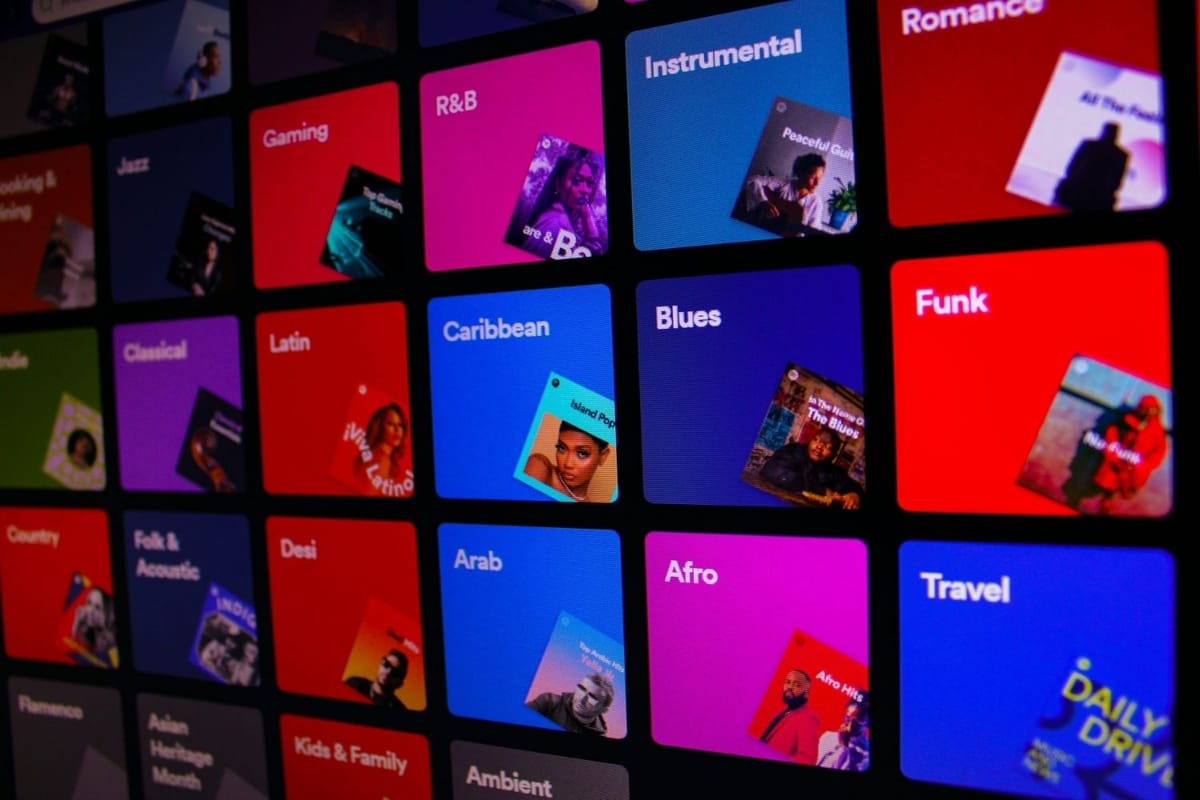Discover Your Sound: The Ultimate Genre Detector for Music Lovers

Ever wondered what makes a song belong to one genre and not another? With so much music out there, it can be a bit overwhelming. That's where a genre detector comes in handy. It's like having a musical compass, guiding you through the vast soundscape of tunes. Whether you're a die-hard music fan or just someone who likes to explore new sounds, understanding how genre detectors work can really change how you listen to music. Let's dive into this world and see how these tools can spice up your playlist.
Key Takeaways
- Genre detectors help identify the musical style of songs, making it easier to organize your music library.
- Understanding different music genres can enhance your appreciation and enjoyment of music.
- These tools use technology like audio recognition and machine learning to classify music.
- Using a genre detector can introduce you to new music you might not have discovered otherwise.
- While genres are useful, it's important to keep an open mind and not box music into rigid categories.
Understanding the Role of a Genre Detector

How Genre Detectors Work
Genre detectors are pretty cool tools. They take a song and analyze its features like tempo, rhythm, and instrumentals to guess what genre it is. Think of it like a musical detective that listens closely to the beats and melodies. The more data it has, the better it gets at identifying genres. It's all about patterns and similarities.
The Importance of Accurate Genre Detection
Why does it matter if a genre detector gets it right? Well, for one, it helps music lovers find new tunes they might like. If you love rock, you might want to explore subgenres like punk or grunge. Accurate genre detection also helps streaming services recommend songs that fit your taste, making your listening experience more enjoyable.
Challenges in Genre Classification
Classifying music into genres isn't always straightforward. Some songs blend elements from different genres, making it tough to label them. Plus, music is constantly evolving, with new genres and subgenres popping up all the time. This means genre detectors need to be regularly updated to stay accurate.
Genre detectors are like personal guides in the vast world of music, helping us explore and discover in ways we might not have thought possible.
To explore personalized music genre recommendations using AI technology, these detectors are key players in matching songs to your unique preferences.
Exploring the World of Music Genres

Popular Music Genres Explained
Music genres are like the spice rack of sound, each offering a unique flavor to the auditory experience. From the catchy beats of Pop to the raw energy of Rock, genres help us categorize and understand the vast world of music. Pop music is all about catchy melodies and hooks that stick in your head. Then there's Rock, which brings a more rebellious vibe with its electric guitars and powerful vocals. Classical music, on the other hand, offers a more structured and sophisticated sound, often with orchestras and complex compositions. Jazz is all about improvisation and complex rhythms, making it a favorite for those who love a bit of unpredictability. Hip-Hop, with its rhythmic beats and spoken lyrics, often tells stories of struggle and triumph. Finally, Electronic Dance Music (EDM) brings the party with its pulsating beats and synthesized sounds, perfect for dance floors around the world.
The Evolution of Music Genres
Genres are not static; they evolve over time, reflecting changes in society, technology, and culture. In the past, genres like Jazz and Blues laid the foundation for Rock and Roll. As technology advanced, so did music, leading to the creation of entirely new genres like EDM. The rise of the internet has also played a significant role in this evolution, allowing for the rapid spread and fusion of musical styles. Artists today are more experimental, often blending elements from multiple genres to create something entirely new. This constant evolution keeps music fresh and exciting, offering endless possibilities for both artists and listeners.
Subgenres and Their Impact on Music
Subgenres are like the branches of a musical tree, each offering a new twist on the main genre. Take Rock, for example; it has spawned subgenres like Punk Rock, which is known for its fast-paced, aggressive sound, and Alternative Rock, which offers a more eclectic mix. In the world of Jazz, you have subgenres like Bebop, which is characterized by fast tempos and complex chord progressions, and Smooth Jazz, which offers a more relaxed, easy-listening experience. Subgenres allow artists to experiment and push the boundaries of what is considered traditional, leading to innovative and exciting new sounds. They also give listeners more options to find exactly what resonates with them, making the musical landscape richer and more diverse than ever before.
Music genres and subgenres are like a vast, interconnected web, each influencing and being influenced by others. This dynamic nature ensures that music is always evolving, always offering something new for those willing to explore.
How to Use a Genre Detector Effectively
Tips for Accurate Genre Detection
Getting the most out of a genre detector can be a bit tricky if you don't know what you're doing. Here are some tips to help you get started:
- Start with a clear audio file: Make sure your music files are clean and free from background noise. This helps the detector focus on the actual music.
- Use high-quality recordings: The better the quality of the recording, the more accurate the genre detection will be.
- Know your music: Understanding the basic elements of the music you're analyzing can help you interpret the results better.
Common Mistakes to Avoid
Even the best tools can lead you astray if used incorrectly. Here are some pitfalls to watch out for:
- Relying solely on the detector: While genre detectors are powerful, they aren't perfect. Always use your own judgment.
- Ignoring the context: Remember that music often blends genres. A song might not fit neatly into one category.
- Overlooking updates: Keep your software updated to ensure you're using the latest detection algorithms.
Maximizing Your Music Discovery
A genre detector can open up new musical worlds for you. Here's how to make the most of it:
- Explore subgenres: Once you find a genre you like, dive into its subgenres for a richer experience.
- Create playlists: Use the detector's results to organize your music into themed playlists.
- Share your discoveries: Connect with other music lovers by sharing your genre finds and expanding your musical horizons.
Using a genre detector isn't just about classifying music; it's about discovering new sounds and enriching your listening experience. Embrace the variety and let your musical taste evolve.
The Technology Behind Genre Detectors
Audio Recognition and Analysis
Understanding how genre detectors work starts with audio recognition and analysis. These systems break down audio signals into components like tempo, rhythm, and melody. This is where the magic really happens—the detector picks apart the song to find its unique sound signature. Imagine it like dissecting a song into its DNA. This detailed breakdown is essential for accurate genre classification, as it helps the system recognize patterns and characteristics specific to each genre.
Machine Learning in Music Classification
Machine learning is a game-changer in music classification. It trains algorithms to identify genres by learning from vast music libraries. The more music it processes, the smarter it gets. Think of it as teaching a child to recognize different animals by showing them lots of pictures. Over time, it learns to spot a cat from a mile away. These algorithms can adapt to new music styles, making them incredibly robust. However, challenges like robustness against audio manipulation still exist, and researchers are continuously working to improve these systems.
Future Trends in Genre Detection Technology
What's next for genre detectors? Expect more integration with AI and better accuracy. As AI evolves, these systems will become even more precise and capable of recognizing subgenres and hybrid genres. The tech might even predict future music trends by analyzing current data. Imagine a world where your playlist updates automatically with songs you'll love, even before you know it yourself. It's an exciting time for music lovers and tech enthusiasts alike.
Genre detectors are reshaping how we experience music, making discovery more personalized and intuitive. As technology advances, so does our ability to appreciate the vast landscape of musical genres.
Benefits of Using a Genre Detector
Enhancing Your Music Experience
Imagine having a personal DJ who knows exactly what kind of music fits your mood, the occasion, or even the time of day. That's what a genre detector can do for you. It helps in tailoring your playlists to suit your preferences, ensuring that every song you hear is something you love. Genre detectors can transform your listening experience from random to curated, making each session more enjoyable.
Discovering New Music
One of the coolest things about genre detectors is their ability to introduce you to new music. By analyzing your current favorites, these tools can suggest tracks from similar genres or even entirely different ones that you might not have considered. It's like having a friend who constantly updates you with fresh tunes. This feature is especially handy for those who are tired of their usual playlists and are looking to explore new musical landscapes.
Personalizing Your Music Library
With a genre detector, your music library becomes a reflection of your unique taste. These tools can help you organize your collection based on genres, making it easier to find that perfect song when you need it. Whether you're in the mood for some upbeat pop or relaxing jazz, a well-organized library means less time searching and more time listening. Plus, it can help you identify patterns in your listening habits, giving you insights into your musical preferences.
Using a genre detector isn't just about sorting your music; it's about understanding and expanding your musical horizons. It can break down barriers between genres, allowing you to appreciate the diversity and richness of music from around the world.
For a comprehensive evaluation of how effective these tools are in recognizing various music genres, consider exploring the latest research and technological advancements in this field.
Overcoming Genre Stereotypes
Breaking Down Genre Barriers
Music is like a universal language, yet we often find ourselves boxed into categories defined by genres. These barriers can sometimes limit our musical exploration and understanding. Genres should not be rigid fences but rather gateways to diverse musical experiences. Many artists blend styles, creating unique sounds that defy traditional labels. By embracing these hybrid genres, we can appreciate the creativity and innovation that artists bring to the table.
Appreciating Diverse Music Styles
Imagine a world where every song sounded the same. Boring, right? Thankfully, music is rich with variety. From the soulful beats of hip-hop to the intricate melodies of classical music, each genre offers something special. Appreciating this diversity means recognizing the cultural and historical context behind each style. It's about seeing music as a reflection of different societies and times, each with its own story to tell.
Encouraging Open-Minded Listening
Listening with an open mind can be a game-changer. Instead of sticking to your usual playlist, try exploring new genres. You might discover a new favorite or gain a fresh perspective on a familiar tune. Here are some tips to broaden your musical horizons:
- Create a genre-mixing playlist.
- Attend concerts or festivals featuring diverse acts.
- Engage in discussions with friends about their favorite genres.
Music is more than just sound; it's an experience that connects us across cultures and generations. By breaking free from genre stereotypes, we enrich our lives and deepen our understanding of the world around us.
Wrapping It Up: Embrace Your Musical Journey
So, there you have it. Finding your musical genre isn't just about sticking a label on your favorite tunes. It's about exploring the vast world of sounds and rhythms that speak to you. Whether you're a die-hard fan of rock, a jazz enthusiast, or someone who just loves a good pop beat, knowing your genre can open up new avenues of discovery. But remember, genres are just a guide, not a box to confine you. Let your musical tastes evolve, and don't be afraid to step out of your comfort zone. After all, music is all about expression and connection. So go ahead, dive into the world of music, and let your ears lead the way. Happy listening!
Frequently Asked Questions
What is a music genre detector?
A music genre detector is a tool that listens to a song and tells you what genre it belongs to. It's like a music detective that figures out if a song is pop, rock, jazz, or any other type of music.
How do genre detectors work?
Genre detectors analyze the sounds in a song, like the beat and instruments, to decide what genre it fits into. They use special computer programs to make these decisions.
Why is it important to know a song's genre?
Knowing a song's genre helps people find music they like. It also helps music apps suggest new songs you might enjoy based on what you already listen to.
Can a song belong to more than one genre?
Yes, a song can fit into more than one genre. Some songs mix different styles, so they can be part of multiple genres at the same time.
What are some common mistakes in genre detection?
Sometimes, genre detectors might get confused by songs that have unusual sounds or mix styles. This can lead to mistakes in identifying the correct genre.
How can I use a genre detector to discover new music?
You can use a genre detector to explore different types of music you haven't heard before. By identifying genres, you can find new artists and songs that match your taste.





